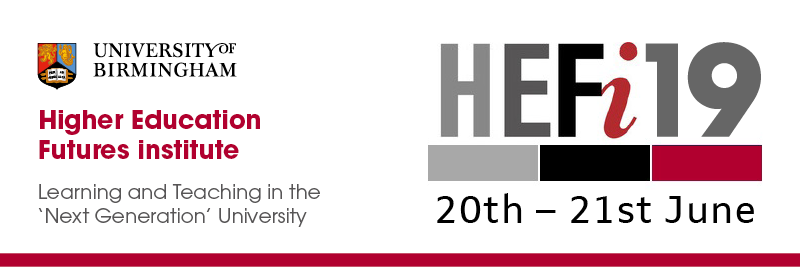Registration (free) is now open for London Conference in Critical Thought (LCCT) 2018, 29th & 30th June 2018, University of Westminster which includes a stream that I have curated on innovative pedagogies umbrella-ed under the title 'Disruptions, Interventions and Liminalities: Critical Performative Pedagogies'.
https://www.eventbrite.com/e/london-conference-in-critical-thought-2018-tickets-44217198832
Please see below for further details and do forward to any interested parties.
The conference schedule (with times comprising my set of panels) can be found here:
http://londoncritical.org/wp-content/uploads/2018/06/LCCT-Short-Programme-21.6.18.pdf
Best wishes,
Lee
DISRUPTIONS, INTERVENTIONS & LIMINALITIES: CRITICAL PERFORMATIVE PEDAGOGIES
Stream Organiser: Dr Lee Campbell
In any pedagogical situation, you want the learners to feel safe. On the other hand, you must know that you may be faced with a group where there isn't a lot of dynamics, there's a lot of sleepiness and so on, and you [the teacher] want to somehow make them active, challenge them. Performative arts would have a lot of strategies (Manfred Schewe, 2016).
This stream asks: 'What happens when performative arts meet pedagogy?' and explores the possibilities of the emerging field of 'performative pedagogy' and its potential as useful and applicable to enabling learning across a range of artistic and possibly other disciplines. Papers comprising this panel from individuals and groups across all creative disciplines deploy pedagogic approaches with an emphasis on performativity to drive learning. They theorise, articulate and demonstrate some of the possibilities of using a critical performative pedagogy which may showcase good practice of making positive usage of performative teaching and learning.
Joe L. Kincheloe describes critical theorists as 'detectives of new theoretical insights, perpetually searching for new and interconnected ways of understanding power and oppression and the ways they shape everyday life and human experience'. (Kincheloe, Joe L., 2008. Critical Pedagogy. Peter Lang: New York). With a similar curiosity around power plays, a selection of these papers reflect upon how power may be understood in critical pedagogy in relation to 'the effects of power on shaping and misshaping the pedagogical act' as a means of (re)thinking how power relations may operate in teaching practice. Applying Michel Foucault's understanding of social power (1980), we envisage performance as a tool to make power relations visible (making performance as mirroring power plays that take place in all forms of daily human existence).
Raphael Hallett has suggested that students' work tends to be valued in terms of a very circumscribed, clean, clear presentation. Disruption, intervention, liminalities are forms of expression that do not necessarily correspond with conventional criteria that lean towards focus, precision, clarity, coherence and structure. Papers forming this stream deploy the strategies of performative pedagogy and relate in some way to 'disruption', 'intervention' and 'liminality'. Performance Art (and Art per se) is predicated on rule breaking, even on discomforting audiences, especially the elitist audiences of Live Art and Performance. As Dr Jane Munro recently pointed out at Tactics of Interruption, (Toynbee Studios, London, June 2016), interruption is about 'creating new forms – allowing interruption to shape the work – not hiding them'. A selection of these papers advocate the power of risk in teaching and learning, that explore disruption/interruption as a 'risky' pedagogic strategy to not only provoke students' participation but also to demonstrate how performative pedagogy can be effectively deployed to break implicit rules surrounding the exchange of power relation between student and teacher.
Panel 1
1 Paul Antick- On using 'foul' language in a university classroom
2 Claire Makhlouf Carter - Bitter Lucky Dip
3 Christabel Harley - The Matter of Art & Design Research
4 Lee Campbell - We Interrupt This Broadcast: Tactics of Disruption as Provocative Pedagogy
Panel 2
1 Jennifer Kitchen - The Power of Play: Ensemble pedagogy, playfulness and the creation of '3rd spaces' in education
2 Mark James Hamilton - Playing with Plurality
3 Jaione Cerrato and Jon Halls - Creating space for informal education in a quantified world
Panel 3
1 Paul Stewart - Art and Commitment: performing critical pedagogy as an art methodology
2 Monica Marroquín-Almanza - The artifacts of memory
3 Nese Ceren Tosun - What can embodied creativity training do for law and business students?
Panel 4
1 Francesca Antonacci- How Performing Arts Will Integrate Mind, Body And Soul
2 Birte Brudermann- Idyll and Scandal
3 Ana Milovanović - Liminalities of Critical Performative Pedagogies in Capitalism
Panel 5
1 Nigel Grimmer- Utilizing Performative Teaching within the Induction Unit as a Social Tool Capable of Aiding Participation and Retention
2 Lisa Peck- Feminist Interventions and Performative Pedagogy in Acting
3 Gavin Baker - Using a performative approach to textual analysis
########################################################################
To unsubscribe from the LEARNING-IN-HE list, click the following link:
https://www.jiscmail.ac.uk/cgi-bin/webadmin?SUBED1=LEARNING-IN-HE&A=1










@The_ACU
http://linkd.in/the-acu